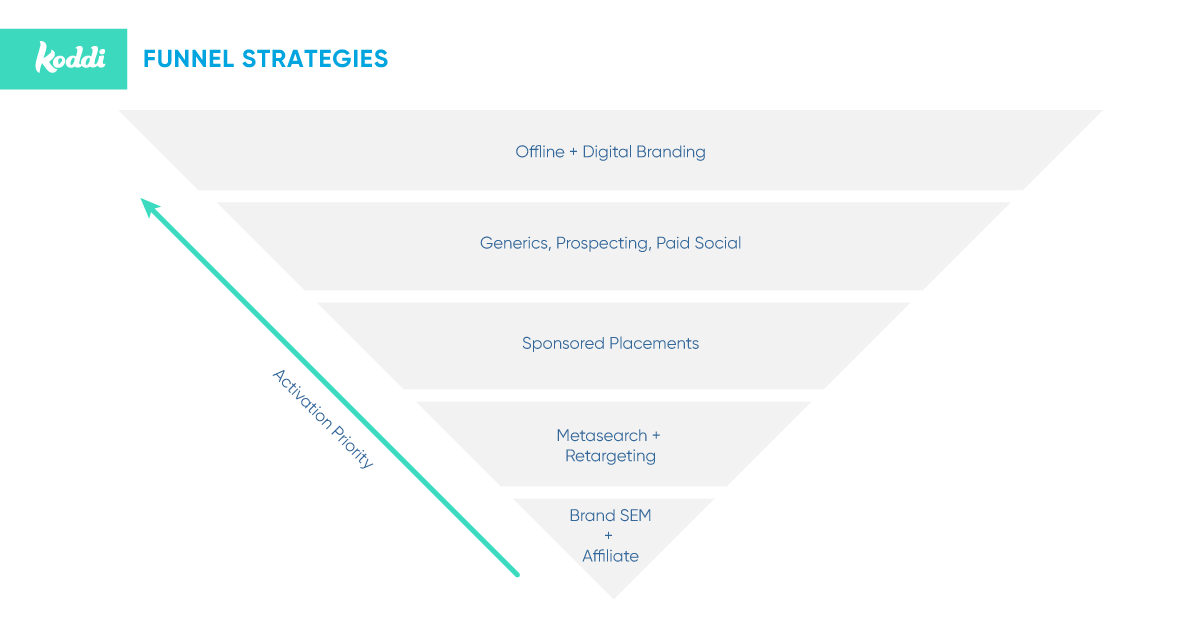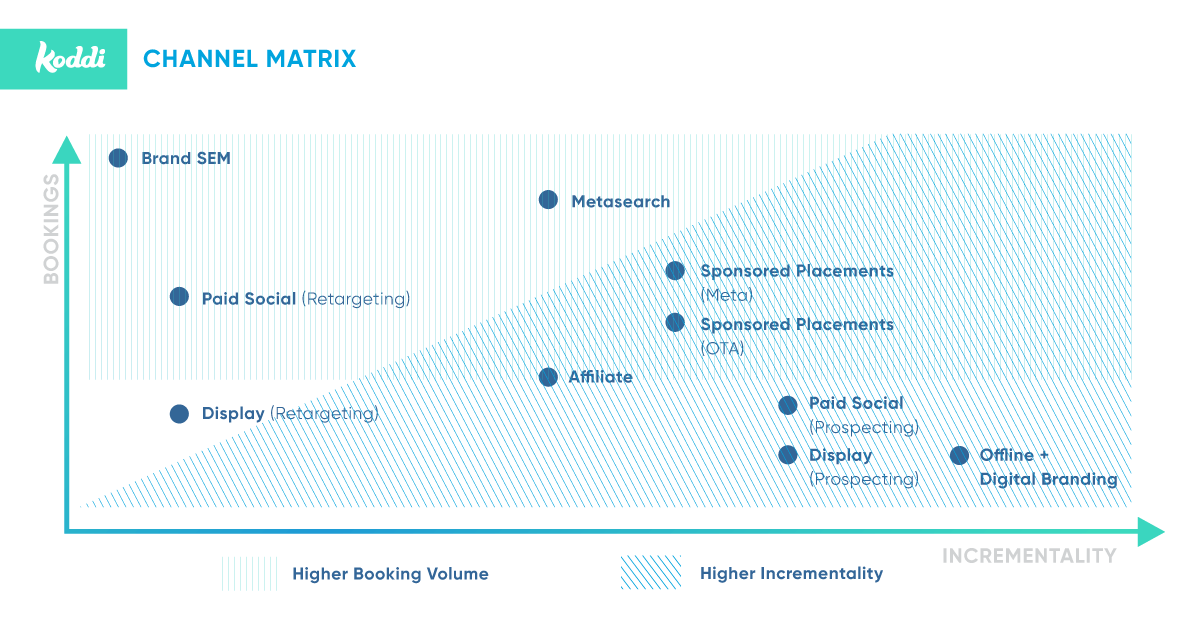Blog
The Importance of Metasearch Investment Amid Covid-19
Published October 14, 2020 by Blair Roche

Due to its position in the consumer funnel and unique targeting capabilities, metasearch has been one of the most successful channels we’ve seen during COVID-19. Suppliers have continued to invest in and rely on metasearch for a few reasons:
- We’ve learned from the past. This isn’t our first rodeo.
- It’s more important than ever to protect market share.
- The current auction dynamics allow for a higher return on ad spend.
- Share shift opportunities are available to drive incremental bookings in a time of desperate need.
Learning from Past Crises
This isn’t the first time the travel industry has been severely affected by a crisis. September 11th in 2001, the SARS crisis of 2003, and the 2008 financial crisis all spurred major disruptions in global travel demand. In 2020, we’re now faced with a similar inflection point – consumer behavior is changing and business strategy will shift dramatically. In 2009, hotels desperately needed to increase occupancy amid a major recession. This meant that the two largest global OTAs saw significant growth following a major financial crisis because a good number of hotel suppliers pulled out of marketing, forcing individual hotels to rely on OTAs to drive bookings.
Protect Market Share
Hotels shouldn’t rely on OTAs alone to capture cost-efficient demand on metasearch. Hotel suppliers investing in metasearch benefit from two key capabilities which are extremely important right now: channel shift (traditional metasearch) and share shift (sponsored placements).
There could very well be an argument to let OTAs put heads in beds at a time like this. The users that are looking to travel are already looking at your hotel – so who cares if they book with the OTA, or if they book on your site? Let the OTA eat the cost, while you reallocate your limited funds to upper-funnel advertising.
At first blush, this reasoning seems fair, but it relies heavily on assumptions. When you dig deeper, simple and overarching statements like “metasearch isn’t incremental” simply aren’t true. Is traditional metasearch incremental?
Yes, it can be, and we will show you how.
At Koddi, we work with our customers to understand their business needs (e.g., low occupancy areas and return expectations) as well as what types of bookings their channel mix generates. By leveraging these insights, we can cater metasearch spending to specific check-in dates, stay lengths, booking window ranges, property types, and more.
By concentrating investment in the most incremental areas, we can simultaneously throttle and break where appropriate – allowing OTAs to win meta auctions when supplier funding is less impactful. So, why shouldn’t you rely on OTAs to drive metasearch bookings? It’s no secret that metasearch is driven by price-sensitive bookers. And about 30% of the time, the users who click through to OTAs will end up further shopping prices on the OTA’s site, eventually booking with another supplier.
Good news for the OTA, bad news for you. Assuming that OTAs will cover where you are not present is not always a winning bet. Being present in the auction ensures that prospective travelers have the option to book direct and that you benefit from leading the customer experience (from the booking to the stay).
Leveraging Post-Covid Auction Dynamics for Metasearch
At the onset of Covid-19, many metasearch publishers reduced or removed their auction floors. Since then, nearly all major players have re-entered the market while CPCs have remained lower. With CPCs recovering somewhat, but not entirely, achieving historical share of voice levels is less expensive and can drive even higher return in reaching prospective travelers at the bottom of the booking funnel. This allows individual hotels to drive more profitable bookings vs paying OTA commissions, and it equips brands to support their hotels when they need it most.
Shifting Share with Metasearch Sponsored Placements
Incrementality is an important focus amid recovery, but upper funnel strategies like video, display, static social ads, etc. aren’t practical for all hotels. At Koddi, we recommend a two-pronged approach for metasearch, leveraging traditional metasearch as well as sponsored listings. 

You may be interested in
GET IN TOUCH
Ready to get started?
Don’t let your brand get lost in the noise. Partner with Koddi to unlock the power of commerce media and transform the way you engage with your customers. Our team of experts is here to help you navigate complexities and develop a strategy that drives results — no matter what industry – in as little as 45 days.